Europe
LGBT ‘Free Zones’ tossed, UK LGBTQ ranking, Pussy Riot singer escapes
A look at top LGBTQ+ stories from Europe & the UK this week as a court rules against bigotry, the UK falters, plus a true-to life spy novel
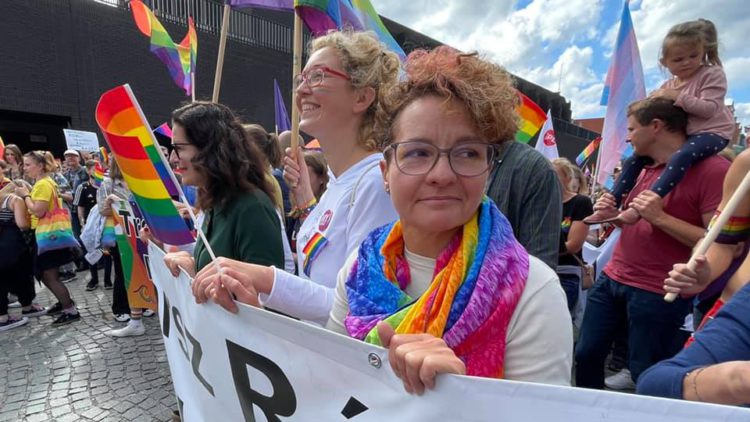
LONDON – LGBTQ+ news from Europe this past week saw a major development in Poland after a Provincial Administrative Court annulled actions taken previously to declare ‘LGBT Free Zones’ by provincial governments.
Large parts of Poland were labelled “LGBT-free zones”, where regional governments declared they were against LGBT ideology. Last fall the executive branch of the European Union, the European Commission, sent letters out last week to the governors of five of Poland’s voivodeships, (provinces) warning that pandemic relief funds totaling over 126 million euros ($150 million) will be withheld over anti-LGBTQ measures passed in their jurisdictions.
Poland has seen a resurgence in the past three years of rightwing religious ultra-conservative groups backed by nationalistic extremists in this heavily Catholic country of 38 million, which have led to passage of measures to restrict pride parades and other LGBTQ+-friendly events from taking place.
Proponents of these measures claim the necessity of the provinces to be “free of LGBTQ ideology” saying this is mandated by average Poles as well as by the anti-LGBTQ+ views of the Catholic Church.
The majority of Polish people support LGBTQ+ rights surrounding marriage and family, according to research by Miłość Nie Wyklucza (Love Does Not Exclude).
The survey found 56% of respondents believe same-sex marriage should be legal to ensure the safety of their children. Even more, 65%, said they felt “a biological parent raising a child with a same-sex partner” fits the definition of family. And 58% of people said a same-sex couple is a family even without children.
Lublin Regional Assembly passed a resolution in April 2019 declaring that LGBTQ+ rights aim to “annihilate” the “values shaped by the Catholic Church” PinkNewsUK reported.
In the same month, Ryki County, a district in Lublin, passed a resolution voting to protect “children, young people, families and Polish schools” from an apparent wave of “homoterror” being unleashed by “left-liberal groups”.
PinkNewsUK also reported that the Provincial Administrative Court in Lublin found the resolutions were “adopted without legal basis and in gross violation of the law” after a legal challenge by the Polish Ombudsman.
They become the eighth and ninth “LGBT-free zones” voided by the courts following interventions by the Polish Ombudsman. Municipal councils in Istebna, Klwów, Serniki, Osiek, Lipinki, Niebylec and the Tarnowski County Council all scrapped such measures in 2019.
This past June, the leaders of 17 European Union countries had signed a letter that urges the EU to fight anti-LGBTQ discrimination. The EU has also called out the anti-LGBTQ measures taken more recently in Hungry.
ILGA-Europe, a Brussels based advocacy group promoting the interests of lesbian, gay, bisexual, trans and intersex people, at the European level, in a statement it sent to the Blade in June after the EU letter was issued, notes that both Hungary and Poland, another EU country in which lawmakers have sought to restrict LGBTQ rights in recent years are at odds with the EU position on LGBTQ+ people.
“For quite some time now, we’ve been informing EU ministers about systematic breaches of EU law committed by Hungary and Poland, which impact on LGBTI rights and the lives of LGBTI people,” says ILGA-Europe.
The UK has dropped to 14th in the ILGA Rainbow Europe’s rankings for LGBTQ+ rights, scoring 53 out of a possible 100
ILGA-Europe, which produces a yearly “rainbow map” of 49 countries across Europe, revealed this past week that the United Kingdom had the most significant drop in ranking for LGBTQ+ equality rights this past year falling from 10th to 14th place.
Leading contributors to the loss in ranking and standing on the ILGA annual listing was due in part to the ongoing battles over transgender rights with a failure by the Tory-led government of Prime Minister Boris Johnson to set gender recognition policies especially in regard to a total ban on LGBTQ+ conversion therapy.
ILGA-Europe’s advocacy director, Katrin Hugendubel, described the UK’s plunging status to The Guardian UK newspaper as “a sad reminder that when governments don’t stand strong on their commitments to advance minority rights, a powerful opposition can use that space to spread hate and division”.
The chief executive of Stonewall UK, Nancy Kelley, warned that “years of progress on LGBTQ+ policy that was achieved under successive administrations has been rapidly eroded by a UK government that has taken its foot off the pedal”.
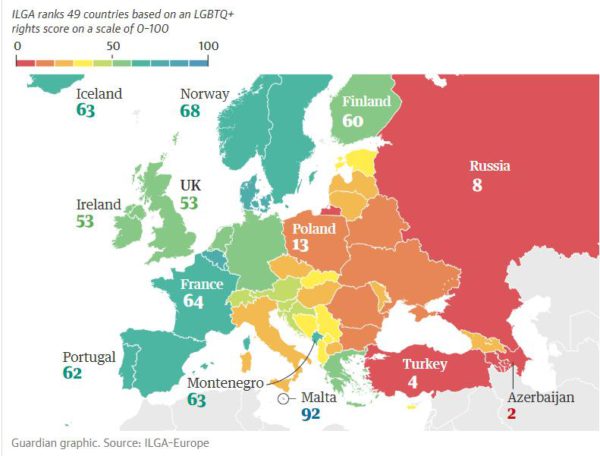
The ILGA highlighted the UK government’s failure to extend a ban on conversion practices to transgender people, as well as abandonment of promised reforms on gender recognition and its equality action plan. It added that the UK also lost points because the government’s equalities watchdog, the Equality and Human Rights Commission (EHRC), was “not … effectively protecting on the grounds of sexual orientation and gender identity” the Guardian reported.
Stonewall’s Kelley called on the prime minister to “step back into the game” as a leader in protecting and promoting LGBTQ+ rights.
“As we approach the 50th anniversary of the first Pride in the UK, we call for his active leadership to rebuild our human rights institutions and to deliver a strategic policy programme that enables all LGBTQ+ people in the UK to live their lives in freedom and safety.”
Maria Alyokhina of Pussy Riot escaped from Russia disguised as a food delivery worker
In what could be best described as a story worthy of a Cold-War era spy novel, the leader of the Russian activist band Pussy Riot fled Russia disguised as a food-delivery worker. Maria V. Alyokhina said in an interview with the New York Times that she was able to get to her girlfriend’s home in Vilnius, Lithuania after evading Russian Federal Security Services agents.
The queer singer-songwriter musician and human rights activist who was on house arrest at the time of her escape was set to be transferred to a penal colony in the Russian Far East after being arrested six times in the past year protesting the policies of Russian President Vladimir Putin and more recently his order for the Russian invasion of Ukraine.
According to the account in the NY Times, Alyokhina left her apartment in the food-delivery worker disguise, and an unnamed friend drove her to the Belarusian border. The problem then became exiting from Belarus to Lithuania as she was turned away at the border twice by Lithuanian border agents.
The Times reported that Icelandic performance artist Ragnar Kjartansson eventually helped Alyokhina acquire the necessary travel documents from an unnamed country that in turn assisted her entering into Lithuania — where many Pussy Riot members had already escaped to, including Alyokhina’s girlfriend, Lucy Shtein.
The band has now kicked off their European tour in Berlin.
Pussy Riot concert with activist after escape from Russia
The Vatican
Vatican approves Italian guidelines for gay priests
Seminary candidates cannot be denied because of sexual orientation, must remain celibate

The Vatican has approved new guidelines that opens the door for gay men in Italy to become priests.
The New York Times on Jan. 10 reported the Vatican approved the guidelines the Italian Bishop’s Conference adopted last November.
The guidelines specifically stipulate seminaries cannot reject applicants simply because of their sexual orientation, as long as they remain celibate. They will remain in place for what the Times described as a “3-year trial period.”
“This development is a big step forward,” said Francis DeBernardo, executive director of New Ways Ministry, a Maryland-based LGBTQ+ Catholic organization, in a press release. “It clarifies previous ambiguous statements about gay seminary candidates, which viewed them with suspicion. This ambiguity caused lots of fear and discrimination in the church, way beyond the arena of seminary admissions.”
“This new clarification treats gay candidates in the same way that heterosexual candidates are treated,” added DeBernardo. “That type of equal treatment is what the church should be aiming for in regards to all LGBTQ+ issues.”
The Vatican in 2016 reaffirmed gay men becoming priests.
“The church, while profoundly respecting the persons in question, cannot admit to the seminary or to holy orders those who practice homosexuality, present deep-seated homosexual tendencies or support the so-called ‘gay culture,’” reads a document the Vatican’s Congregation for the Clergy released that Pope Francis approved.
The document essentially reaffirmed the Vatican’s 2005 position on the issue. (Benedict XVI was pope at the time.)
The Vatican’s tone towards LGBTQ+ and intersex issues has softened since Francis became pope in 2013.
Francis publicly backs civil unions for same-sex couples, and has described laws that criminalize homosexuality as “unjust.” Francis in 2023 said priests can bless same-sex couples.
The pontiff earlier this month named Cardinal Robert McElroy of San Diego, who DeBernardo notes has made “strong positive statements regarding LGBTQ+ issues,” as the new archbishop of Washington. President-elect Donald Trump has nominated Brian Burch, the president and co-founder of CatholicVote, an anti-LGBTQ+ Catholic group, to become the next U.S. ambassador to the Vatican.
Francis during a 2023 interview with an Argentine newspaper described gender ideology as “one of the most dangerous ideological colonizations” in the world because “it blurs differences and the value of men and women.” A declaration the Vatican’s Dicastery for the Doctrine of the Faith released last March with Francis’s approval condemned gender-affirming surgeries and “gender theory.”
Liechtenstein
Liechtenstein marriage equality law takes effect
US embassy praises ‘countless individuals who worked tirelessly for equality’

A law that extends marriage rights to same-sex couples in Liechtenstein took effect on Wednesday.
Lawmakers in the small European country that borders Switzerland and Austria approved a marriage equality bill in May 2024. Liechtenstein is the last country in which German is the primary language to extend marriage rights to same-sex couples.
Same-sex couples have been able to legally marry in Switzerland and Austria since 2022 and 2019 respectively. Same-sex marriage has been legal in Germany since 2017.
“This milestone is a testament to the dedication and advocacy of countless individuals who worked tirelessly for equality,” said the U.S. Embassy in Bern, the Swiss capital, in an X post.
Congratulations to 🇱🇮 on the enactment of same-sex marriage, effective as of today! This milestone is a testament to the dedication and advocacy of countless individuals who worked tirelessly for equality. Wishing everyone a joyful and inclusive start to the New Year! 🌈✨ pic.twitter.com/ZbG5Vd4tOf
— U.S. Embassy Bern (@USEmbassyBern) January 1, 2025
The Washington Blade in 2022 interviewed Scott Miller, the openly gay U.S. ambassador to Switzerland and Liechtenstein. He was among those who spoke at Liechtenstein’s first-ever Pride event that took place that year.
“It will be a discussion that I think activists will have to work on a lot,” he said, referring to marriage equality efforts in Liechtenstein. “I will support (them) in any way I can.”
The Vatican
LGBTQ+ pilgrimage to take place during Catholic Church’s 2025 Jubilee
Event not ‘sponsored or organized by’ the Vatican

A group of LGBTQ+ Christians in Italy has said the Vatican has approved its request to make a pilgrimage during the Catholic Church’s 2025 Jubilee.
The National Catholic Register on Dec. 11 reported La Tenda di Gionata (Jonathan’s Tent) — an Italian Christian group that helps “LGBT people and their families feel welcome in their church” — asked members to “save the date” of Sept. 6, 2025, and invited “all associations and groups dedicated to supporting LGBT+ individuals and their families to join us as we officially cross the Holy Door of the Jubilee at St. Peter’s Basilica” at 3 p.m.
The National Catholic Register notes the pilgrims have also been invited to a Mass at the Jesuit Church of the Gesù that Msgr. Francesco Savino, vice president of the Italian Episcopal Conference, will celebrate.
Church Jubilees take place every 25 years.
Jubilee 2025 officially begins on Christmas Eve.
Jubilee spokesperson Agnese Palmucci confirmed to the National Catholic Register that La Tenda di Gionata’s proposed pilgrimage has been “included in the general calendar as a pilgrimage, along with all the other pilgrimages that other dioceses will make,” but noted it is “not a Jubilee event sponsored or organized by us.”
“It is a pilgrimage organized by this association which, like the other dioceses, bodies and associations, will make the pilgrimage as they wish,” said Palmucci.
Francis DeBernardo, executive director of New Ways Ministry, a Maryland-based LGBTQ+ Catholic organization, on Dec. 10 noted he traveled to Rome in 2000, the last Jubilee year, and spoke at the first WorldPride that took place that summer.
“One of the things I remember most about that time was the anger expressed by the Vatican and the pope himself that World Pride was taking place in Rome during the Jubilee year,” wrote DeBernardo on New Ways Ministry’s website. “Perhaps particularly galling to John Paul II was that the pride event was taking place in the first week of July, which was the same week that pilgrims from the pope’s native Poland were scheduled to flood the city. And indeed, everywhere you looked you saw people with bright red neckerchiefs, a symbol of Polish heritage.”
DeBenardo noted the “mood in” Rome “was incredibly tense.”
“Vatican anti-gay rhetoric had fueled anti-gay sentiment beyond the Catholic Church, and many right-wing Italian political groups were denouncing World Pride, which was to culminate in a march from the Porta San Paolo to the Colosseum,” he wrote. “Anti-gay messages were plastered all over the city buildings. One message in particular remains strong in my memory: ‘Gay al Colosseo? Sì, con i leoni.’ (Translation: ‘Gays at the Colosseum? Yes, with lions.’)”
DeBenardo wrote the inclusion of an LGBTQ+ pilgrimage during the 2025 Jubilee “touched my heart.”
“While 2025’s event may seem like a small step, when compared with how the Vatican reacted to the presence of gay people in Rome during 2000, we can see what a sea change has taken place in terms of responding to LGBTQ+ people,” he said.
The Vatican’s tone towards LGBTQ+ and intersex issues has softened since Pope Francis assumed the papacy in 2013.
Francis publicly backs civil unions for same-sex couples, and has described laws that criminalize homosexuality as “unjust.”
He met with two African LGBTQ activists — Clare Byarugaba of Chapter Four Uganda and Rightify Ghana Director Ebenezer Peegah — at the Vatican on Aug. 14. Sister Jeannine Gramick, one of the co-founders of New Ways Ministry, organized a meeting between Francis and a group of transgender and intersex Catholics and LGBTQ+ allies that took place at the pontiff’s official residence on Oct. 12.
Francis during a 2023 interview with an Argentine newspaper described gender ideology as “one of the most dangerous ideological colonizations” in the world because “it blurs differences and the value of men and women.” A declaration the Vatican’s Dicastery for the Doctrine of the Faith released in March with Francis’s approval condemned gender-affirming surgeries and “gender theory.”
Europe
Andorra’s prime minister comes out as gay
Xavier Espot Zamora spoke with country’s public broadcaster
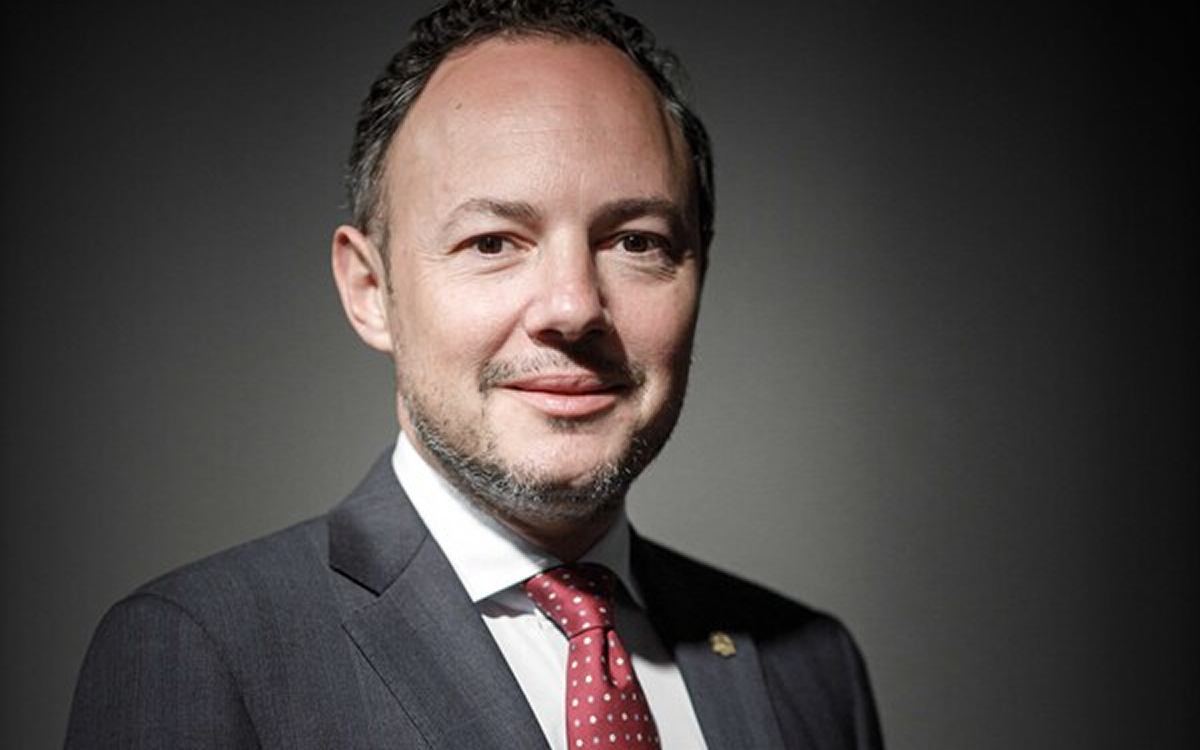
ANDORRA LA VELLA, Andorra — Andorran Prime Minister Xavier Espot Zamora has come out as gay.
“I’m gay. I’ve never hid it,” he said during an interview with Radio and Television of Andorra, the country’s public broadcaster, on Monday. “Now, if I’m not asked I don’t have to say it, in the sense that it doesn’t define the entirety of who I am and even less my personal politics, but at the same time I think it shouldn’t be a problem to express it. And if this helps many children, young people or teenagers who are going through a difficult time see that in the end, regardless of their condition or sexual orientation, you can prosper in this country and reach the highest magistracy, then I am happy to express it.”
Andorra is a small country known for its ski areas that is nestled between Spain and France in the Pyrenees.
Espot has been prime minister since 2019. The country’s lawmakers in 2022 extended marriage rights to same-sex couples.
The prime minister is one of a handful of heads of state and government who are openly gay or lesbian.
Latvian President Edgars Rinkēvičs took office in July.
Luxembourgish Prime Minister Xavier Bettel has been in office since 2013, while Ana Brnabić became Serbia’s prime minister in 2017. Irish Prime Minister Leo Varadkar is openly gay.
Deputy Belgian Prime Minister Petra De Sutter is a transgender woman.
Then-Icelandic Prime Minister Jóhanna Sigurðardóttir in 2009 became the world’s first openly LGBTQ+ head of government.
Europe
Rikkie Valerie Kollé named Miss Netherlands 2023: Historic first
Rikkie Valerie Kollé was selected as Miss Netherlands and will represent her country at the 72nd Miss Universe pageant
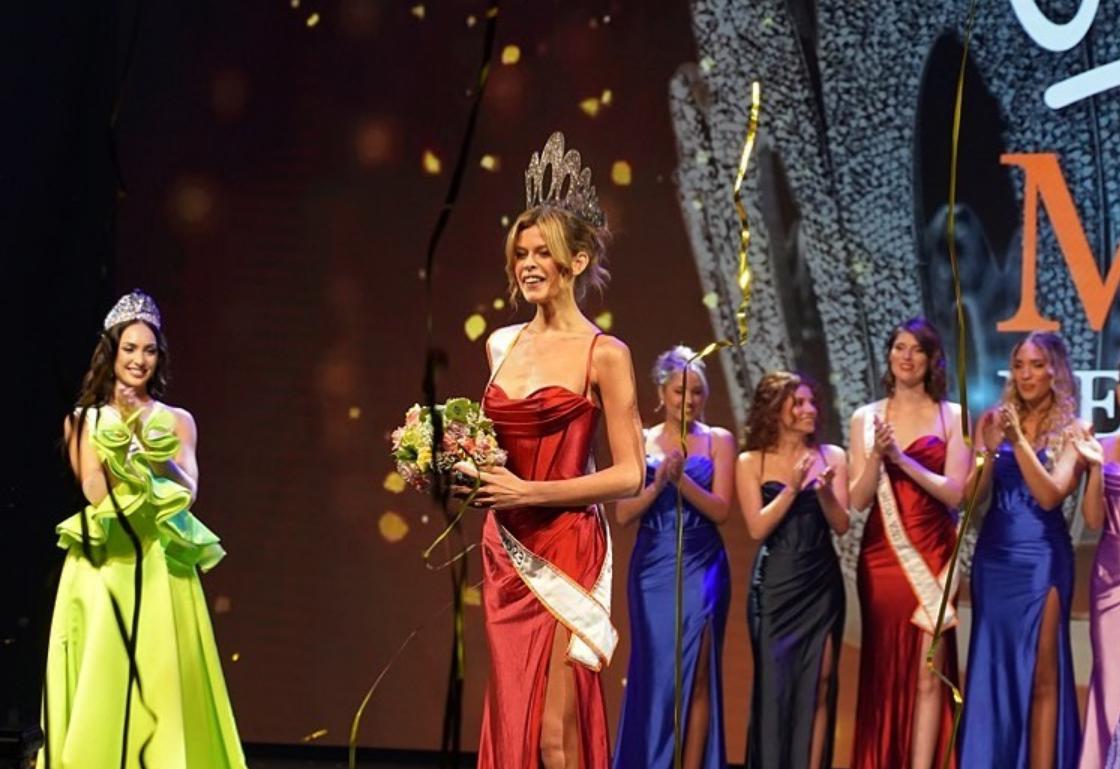
LEUSDEN, Utrecht, the Netherlands – In a historic first for the beauty pageant where the finalist will go on to compete in the Miss Universe pageant, the title and tiara of Miss Netherlands was awarded to a 22-year-old transgender woman on Saturday, July 8 at the AFAS Theater in Leusden.
Rikkie Valerie Kollé was selected as Miss Netherlands and will represent her country at the 72nd Miss Universe pageant set to take place in El Salvador later this year. Kollé, a Dutch-Moluccan model and actress living in Breda succeeds her predecessor, Ona Moody.
In a press release, pageant officials noted that Nathalie Mogbelzada, 26, from Amsterdam, was named first runner-up while Habiba Mostafa and Lou Dirchs were awarded Miss Congeniality and Miss Social Media, respectively.
Reigning Miss Universe R’Bonney Gabriel from the United States attended the glittering event as a special guest.
Kollé will be the second transgender representative at the Miss Universe pageant after Spain’s Angela Ponce who participated in 2018.
NPR reported the 71-year-old competition first began allowing transgender contestants in 2012.
More trans women have been competing in the preliminary pageants in recent years. In 2021, former Miss Nevada Kataluna Enriquez became the first trans contestant in a Miss USA pageant. Trans woman and activist Daniela Arroyo González will compete for this year’s Miss Universe Puerto Rico title next month.
Thai business mogul Anne Jakrajutatip, a trans activist who is also transgender, bought the Miss Universe Organization last year. She has said she’s committed to advancing the organization as an inclusive platform and wants to transform the brand for the next generation.
NPR also noted that Kollé has another chance to make history: If she takes the Miss Universe title in December, she would be the first out trans woman to do so.
Europe
Turkish police detain dozens of Istanbul Pride march participants
Anti-LGBTQ crackdown expected to worsen after president re-elected
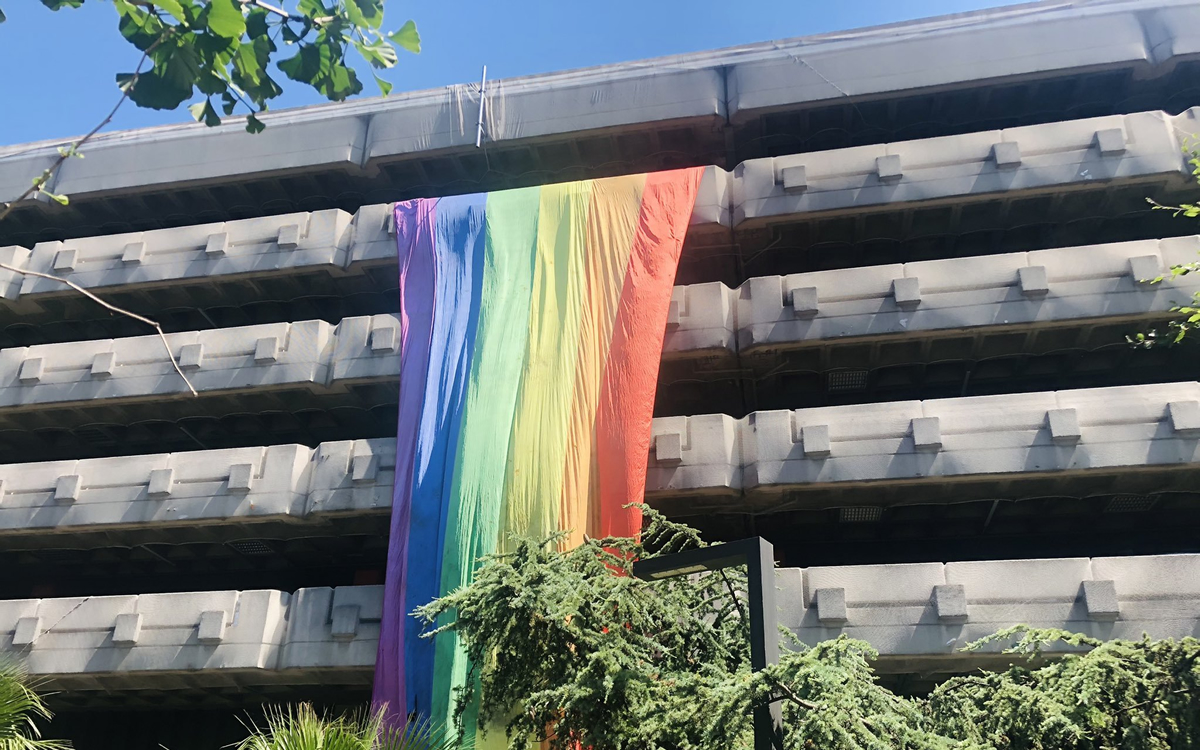
ISTANBUL — Turkish police on Sunday detained dozens of people after they participated in an Istanbul Pride march.
Reuters reported police in riot gear blocked access to the city’s Istiklal Avenue and Taksim Square and limited access to public transportation in the area.
The news agency noted police detained at least 50 people. An activist with whom the Washington Blade spoke on Sunday said police took 60 “of our friends … into custody.”
“Two of the people the police unlawfully took from the streets to take statements are under the age of 18,” said the activist.
Turkish authorities over the last decade have cracked down on LGBTQ+ and intersex activists in the country.
Police in 2015 used tear gas and water cannons against people who were about to participate in an Istanbul Pride march. Authorities in 2017 arrested nearly two dozen people who defied a ban on Pride events in the city.
Police in Ankara, the Turkish capital, on May 10, 2019, arrested 18 students and an academic who participated in a Pride march at the Middle East Technical University. They faced up to three years in prison, but a court in 2021 acquitted them. Police in 2022 violently broke up a Pride parade at the same Ankara university.
The State Department in 2021 criticized Turkey after police once again used tear gas to disperse Istanbul Pride march participants. Security forces last June arrested more than 370 people who tried to participate in another Istanbul Pride march.
The activist with whom the Blade spoke noted police in Izmir, the country’s third largest city, on Sunday detained at least 10 people who participated in a Pride march.
President Recep Tayyip Erdoğan, a former Istanbul mayor who has governed Turkey since 2003, won re-election on May 28. The activist and others across the country say they expect Erdoğan will further restrict on LGBTQ+ and intersex rights.
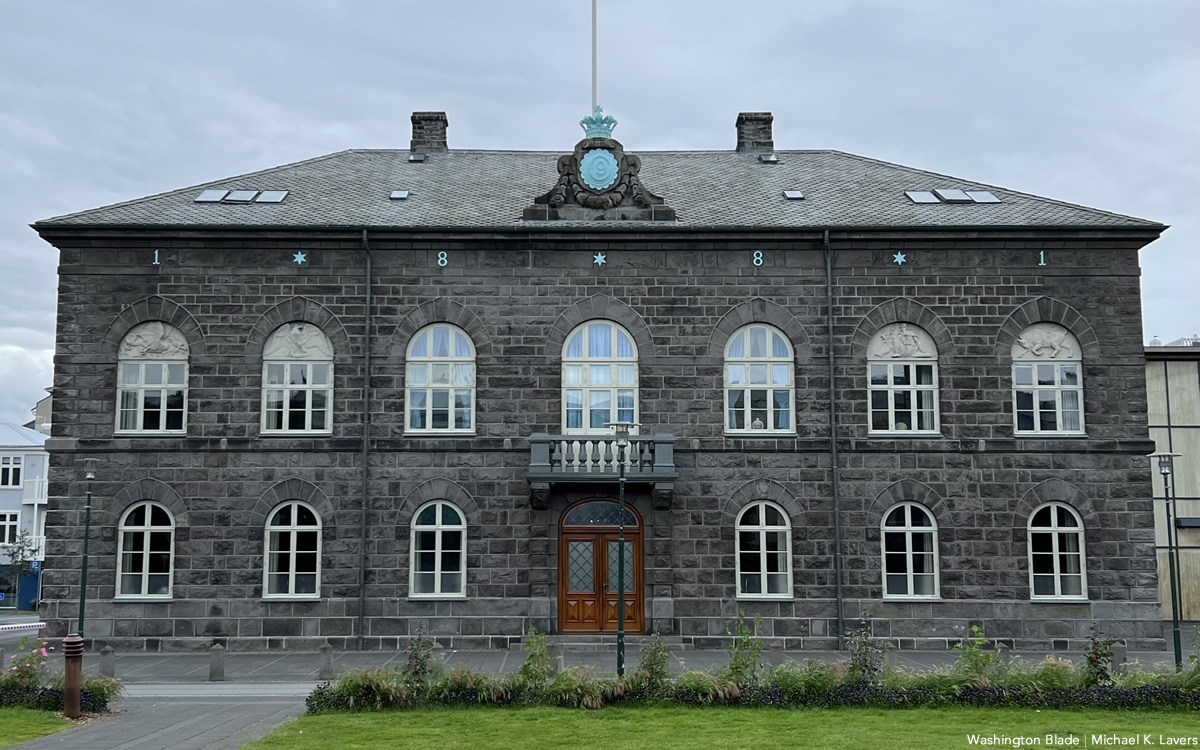
REYKJAVÍK, Iceland — Lawmakers in Iceland on June 9 approved a bill that will ban so-called conversion therapy in the country.
Media reports note 53 members of the Icelandic Parliament voted for the measure, while three MPs abstained. Hanna Katrín Friðriksson, an MP who is a member of the Liberal Reform Party, introduced the bill.
“This is a really important issue for all gay people and a step worth celebrating,” said Samtökin ’78, an Icelandic LGBTQ+ and intersex rights group, after the vote. “There is no cure for being gay and any attempt to do so is violence. It’s so good that the government recognizes it with legislation.”
Malta, Cyprus, Brazil and Ecuador are among the other countries that ban conversion therapy.
Europe
ILGA-Europe: New program for racialized LGBTQ+ communities
The new initiative will be supporting up to 15 organizations’ work on socio-economic justice for racialized LGBTI communities
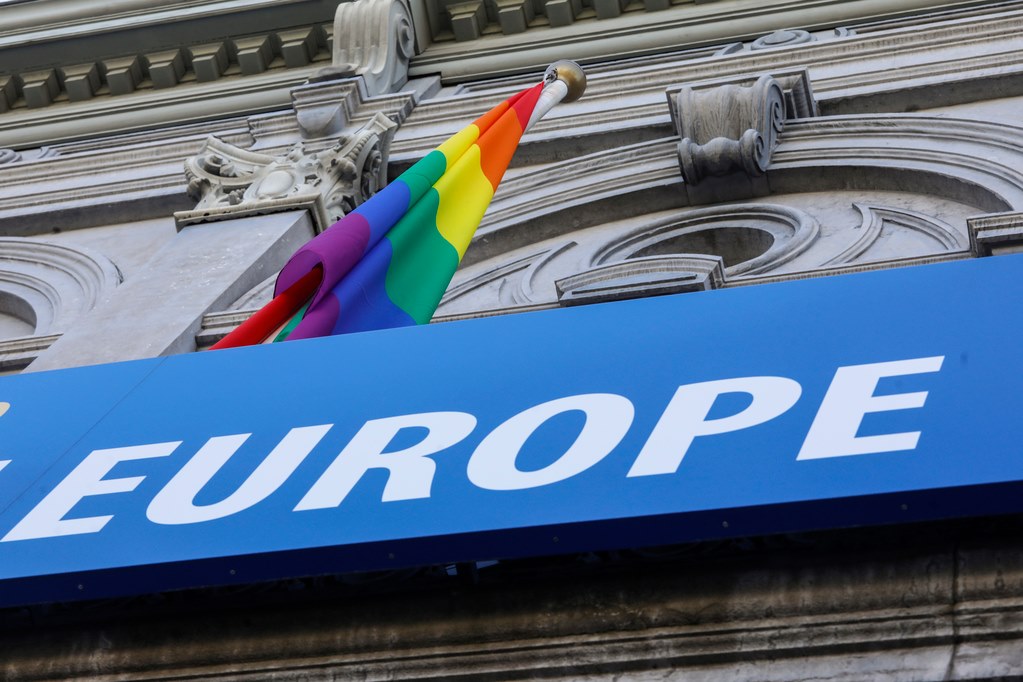
BRUSSELS, Belgium – ILGA-Europe announced a new two part 12-month program focused on the work being done by and for racialized LGBTQ+ communities across Europe this week.
According to the international LGBTQ+ advocacy non-profit, the new initiative will be supporting up to 15 organizations’ work on socio-economic justice for racialized LGBTQ+ communities through a combination of grants and other resources.
The program has two interconnected components:
- Financial support for the implementation of a project (up to 20.000 euro per project), AND
- Learning and networking that will bring grantees together (on-line) on a regular basis to exchange learning, share challenges and solutions, build solidarity and find points for collaboration and inspiration.
The aim of this program is to:
- Bring together a group of up to 15 European LGBTI organizations/groups across Europe that work on addressing the intersectional impact of socio-economic injustice, racialization, racism and supremacy and specific harms affecting the lives of racialized LGBTI communities across Europe.
- Support, strengthen and advance their work on socio-economic justice for racialized LGBTI communities through a combination of grants and regular peer-learning/networking meetings.
ILGA-Europe noted that currently, the LGBTI movement across Europe operates in an increasingly hostile environment that directly affects the lives of LGBTI communities and the work of activists.
This environment is marked by anti-rights opposition, anti-democratic developments, rising unemployment, economic crises, ongoing and brewing geo-political conflicts, deepening structural inequalities, fear-mongering, mounting transphobic, and sexist and racist rhetoric and violence.
In a statement, ILGA-Europe said:
“So many organizations and groups have been doing incredible work and contributing to change, while at the same time being historically excluded from funding. By supporting these groups, we also wish to recognise and acknowledge the specialized knowledge and skills involved in addressing intersectionality. This can mean anything from exposing structural oppressions that shape harm; building and sustaining the resilience of racialized communities; developing and applying anti-racist, feminist and alternative approaches; to working through – and in spite of – institutional violence and trauma.
This programme expresses our commitment to continue our engagement with socio-economic justice and to strengthen our work on anti-racism. We see a great value for the wider movement in making the work of the organizations supported, disseminated and visible. We see an opportunity to bring the learning from this programme to the wider movement, as we believe that solutions and approaches that include a few will pave the way and point to the solutions for many.”
Key information & details:
In selecting proposals, ILGA-Europe will prioritise projects that:
- Demonstrate clear understanding of how the intersection of LGBTI identities, socio-economic injustice and racialisation works in their local contexts
- Present a clear plan for how the envisaged change is going to come about in these contexts
- Seek to establish practices/tools/solutions that can live beyond the project’s lifetime
- Have the potential to enhance the movement’s thinking on anti-racism and working towards socio-economic justice in general and for socio-economic justice for racialised LGBTI communities in particular.
- Respond to the framework, aim, objectives, and areas of work of this call
- Are implemented by LGBTI-run organisations and initiative groups in Europe that have history and practice of working with and for racialised LGBTI communities
Deadline & Timeline:
- Proposals should be submitted using the attached application form and budget template. The last day to submit your application (deadline) is 2 April 2023, Sunday, 23:59 CEST.
- We will review applications, decide on projects to be supported and inform all applicants about the results of the review via the e-mail address provided in the application by 5 May 2023.
- Contracts will be signed with organisations in May 2023. Successful applicants should be available to respond to requests during that period. The project must start on 1 June 2023.
- To submit an application or if you have any questions in the preparation of your project proposal, please contact: [email protected]
Questions?
If you have any questions in the preparation of your project proposal please submit them via e-mail to [email protected]
We will answer all of your questions via e-mail and then publish answers on a dedicated ilga-europe.org website page on 27 February and on 23 March, in order to share the information among all applicants.
Europe
Slovakian Parliament rejects same-sex registration for couples
The legislation did not give equal protections and rights such as marriage or civil unions and needed 76 votes to be passed
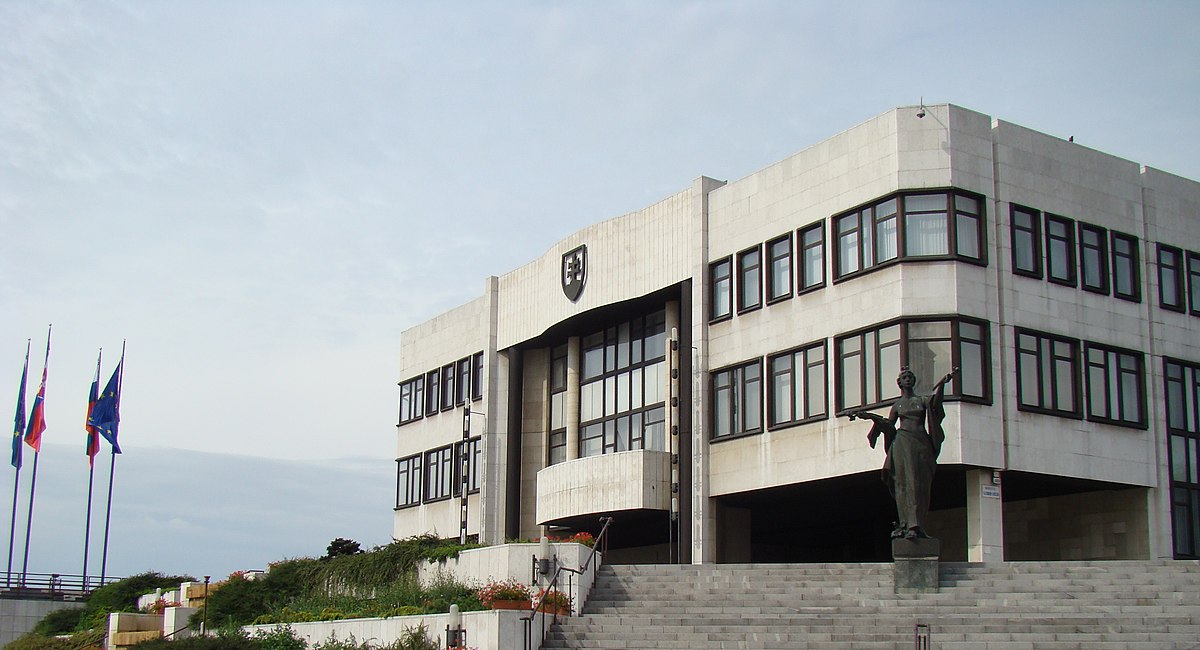
BRATISLAVA, Slovakia – A proposal that would have codified the ability of same-sex couples in Slovakia to register their partnership, which would have granted inheritance rights, decisions regarding medical care, treatments and compensation in the event of death or injury at work, was rejected by the Slovakian Parliament this past week.
The legislation did not give equal protections and rights such as marriage or civil unions and needed 76 votes to be passed. The bill saw 50 parliamentarians vote in favour, 37 politicians vote against, 15 submitted a blank vote, and 31 did not vote at all.
Slovakian President Zuzana Čaputová was critical of the outcome telling various media outlets the legislation was necessary to protect the “safety and acceptance of [our] fellow-citizens.” “We need to act,” she tweeted. “Our society is not threatened by the love of two people of the same sex or their partnership.”
The vote on the legislation occurred a few days after a vigil was held in the Slovakian capital city to honor the two victims killed and a third who was badly wounded in a shooting outside of the Tepláreň bar, a popular LGBTQ+ establishment in the old city, which was also attended by the nation’s president and the European Parliament’s Vice-President.
President Čaputová noted regarding the vote, “Our society is paying for indifference and insensitivity when even such a tragedy does not move a sufficient number of deputies to take the necessary and correct step.”
Opposition to granting rights to same-sex couples as well as opposition to LGBTQ equity in rights in the country is led by the far-right political groups including the Kresťanská únia (Christian Union). Richard Vašečka, a party Member of Parliament told the Standard his party promised before the last elections to protect marriage as a union between a man and a woman.
He added he is afraid that this law is only the start of an “avalanche” that ends with allowing the adoption of children by same-sex couples and punishing people for disagreeing with the LGBTQ agenda.
Vašečka stressed that he respects every person but is convinced that “every child deserves a father and a mother, and it is the best family space for raising children.”
Europe
Montenegro’s 10th pride held despite strong opposition & protests
The country’s government backed Pride in recent years & approved same-sex partnerships in 2020 as it seeks membership in the European Union
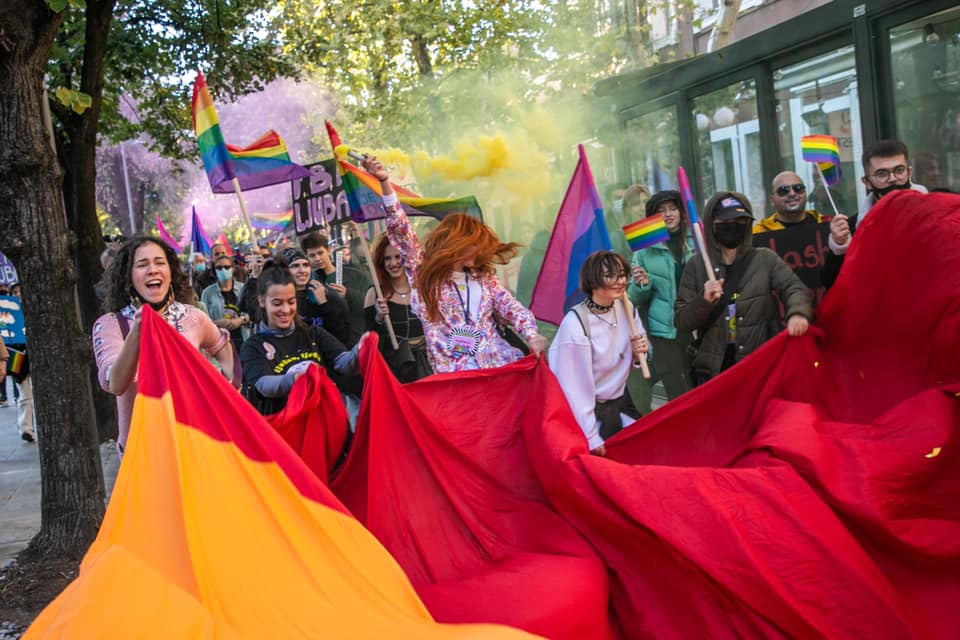
PODGORICA, Montenegro – Despite strong opposition from the powerful Serbian Orthodox Church in Montenegro joined by pro-Serbian self labeled traditional values and family officials, Montenegro Pride was held with over 500 people in attendance marching Saturday.
Montenegro Prajd: 'Nema više ali'
— Radio Slobodna Evropa (@RSE_Balkan) October 8, 2022
U Podgorici je održan deseti Montenegro prajd pod sloganom "Nema više ali". Više stotina pripadnika LGBTIQ populacije i građana prošetalo je centrom grada. ⬇️ pic.twitter.com/DkQJNY083m
Montenegro’s 10th annual pride event in this extremely conservative Balkan country was dubbed “No more buts,” reflecting demands from LGBTQ+ activists that more be done to stem hate speech and harassment of the nation’s LGBTQ community despite huge steps that have been made in the past years Voice of America reported.
Support for the Montenegrin LGBTQ+ community was also expressed by the U.S. Embassy which tweeted “In honor of #MontenegroPride and the #LGBTQI community in Montenegro the U.S. Embassy is illuminated with the rainbow colors! Happy Pride! #nemaviseali
In honor of #MontenegroPride and the #LGBTQI community in 🇲🇪, the 🇺🇸 Embassy is illuminated with the 🌈 colors! Happy Pride! #nemaviseali pic.twitter.com/KtKCK2cjIi
— US Embassy Podgorica (@USEmbassyMNE) October 8, 2022
“We gathered here for the 10th time to show we are human, (that we are) live beings made of flesh and blood, wishes and dreams, but rejected and ignored, discriminated and trampled upon because of love,” LGBTQ+/Human rights activist Stasa Bastrica told Voice of America.
What a beautiful day! We could not have been happier to have joined the 10th anniversary of Pride and share the joy with so many people on independence square. We stand for equality every day but today was very special #nemaviseali #happypride pic.twitter.com/yNK4aYVp3i
— NDI Montenegro (@NDIMontenegro) October 8, 2022
The country’s government and elected officials have backed pride events in recent years and approved same-sex partnerships in 2020 as the country seeks membership in the European Union.
Bastrica pointed out while speaking with a reporter from VOA, the church and other conservative forces in Montenegro have fueled hatred against LGBTQ community by “making us the main enemy of the majority and … insanely blaming us for the disappearance of marriage, family (values) and sometimes natural disasters, and all in the name of God.”
Another activist, Danijel Kalezic said Friday’s Serbian Orthodox church-led gathering opposing the Pride March and LGBTQ+ rights in general illustrated the divisions in Montenegro. He insisted that the LGBTQ community will not give up their demands.
“We don’t want them (officials) to come here and take photos with us,” Kalezic said. “We want results. No more buts!”
-

 Arts & Entertainment4 days ago
Arts & Entertainment4 days agoA Night of legacy, love, and liberation: Inside the 2025 April Fool’s Ball
-

 Movies4 days ago
Movies4 days agoHeartfelt ‘Wedding Banquet’ remake a romcom worth seeing
-

 Arts & Entertainment4 days ago
Arts & Entertainment4 days agoSouth Coast Repertory Theatre hosting world premiere production
-

 Brazil3 days ago
Brazil3 days agoUS lists transgender Brazilian congresswoman’s gender as ‘male’ on visa
-

 opinions2 days ago
opinions2 days agoOver 36,000 Angelenos unite for ‘Fighting the Oligarchy’ rally
-

 Congress3 days ago
Congress3 days agoEXCLUSIVE: Garcia demands answers on deportation of gay Venezuelan asylum seeker
-

 Books1 day ago
Books1 day ago‘Pronoun Trouble’ reminds us that punctuation matters
-

 Theater2 days ago
Theater2 days ago‘The Broadway Cage Match’ ready to rumble at WeHo’s Musical Mondays
-

 Features2 days ago
Features2 days agoNew mayor Chelsea Byers, hopes to make WeHo a model city for others to follow


